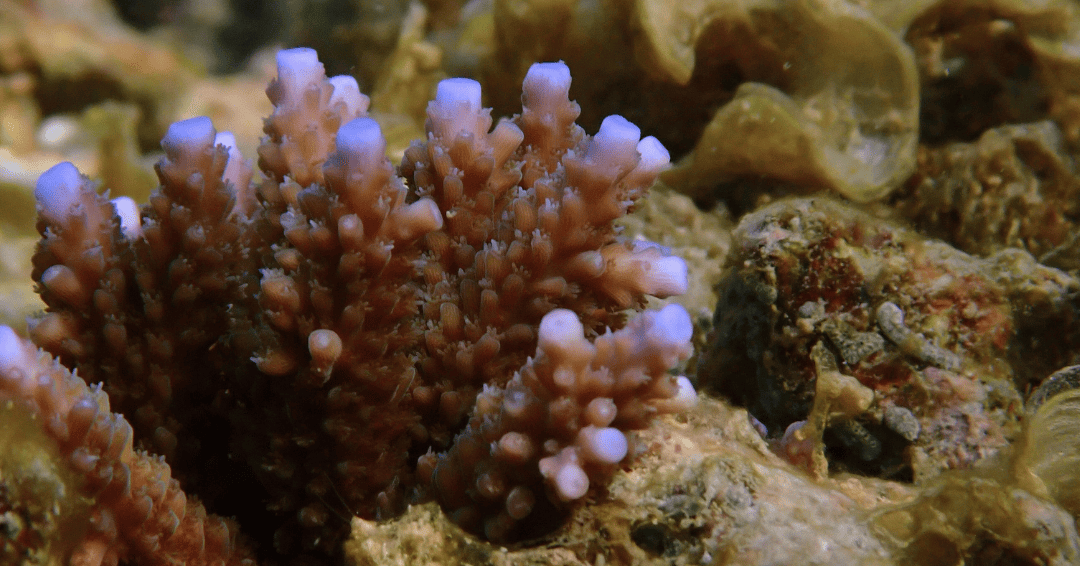Project title: Coral Resilience Strategy A Microbiome and Symbiotic Adaptations Across a Thermal Stress Gradient in Indian Oceans
Lead applicant: Prof. Joseph Selvin
Countries involved: India
Takes place: India
Supporting institutions: Pondicherry University
Total budget: USD 98,100
Duration: 24 months
Project overview
Coral reefs are increasingly threatened by the combined effects of climate change, disease outbreaks, habitat destruction, and human-induced pressures such as pollution. These stressors disrupt the delicate balance of the coral holobiont – a system made up of the coral host and its symbiotic partners – leading to shifts in the microbiome, loss of symbionts, and breakdown of interspecies coexistence. Under extreme stress, corals’ symbiotic dinoflagellates leave their host, resulting in coral bleaching. This phenomenon is primarily driven by elevated sea surface temperatures, high irradiance, disease, and changes in pH. Symbiotic dinoflagellates are critical to coral survival, supporting energy production, growth, reproduction, and calcification—the very foundation of reef ecosystems. Without the symbionts, which provide most of the coral’s energy, corals lose both their color and their main food source. Equally, the coral microbiome plays a key role in sustaining metabolic functions, where microbial diversity and redundancy can enhance the holobiont’s ability to adapt to rapid environmental change. Together, the coral’s symbionts and microbiome form the backbone of resilience to climate-driven stress.
In India, however, foundational studies on the diversity of coral symbionts and microbiomes – and their role in corals resilience – remain limited. This project aims to fill that gap by investigating how sea surface temperature influences symbiotic dinoflagellate diversity and bleaching susceptibility across key reef ecosystems, including the Gulf of Mannar (Palk Bay) and the Andaman & Nicobar Islands. The team will work to identify early-warning genetic signals of coral stress, characterize viable microbial therapies, and generate insights to inform region-specific reef restoration strategies.
Specific objectives
- Assess the microbiome composition of corals from polluted (Palk Bay) and pristine (Andaman & Nicobar) environments
- Assess the diversity of symbiotic dinoflagelates using genetic tools
- Isolate and culture beneficial coral-associated bacteria across different bleaching stages
- Evaluate indicators of coral stress, resilience, and recovery
- Develop a comparative framework for site-specific reef restoration strategies
How the objectives will be met
Corals microbiome composition:
- Sample corals in the anthropogenically stressed Palk Bay and the relatively pristine Andaman and Nicobar Islands, across six defined phases: I – healthy, II – bleaching start, III – intermediate bleach, IV- after bleach, V – reviving, and VI- flourish
- Characterize and identify the microbial diversity, structure, and potential functional roles of bacteria across different bleaching stages by using genetic tools (16S rRNA sequencing).
Symbiotic dinoflagellates composition:
- Perform genetic profiles (ITS2 region) to identify the diversity of symbionts between the two environments and across bleaching stages.
Beneficial coral-associated bacteria
- Sample coral tissue and mucus across the different bleaching stages.
- Culture bacterial isolates from coral tissue and mucus
- Identify bacterial strains with probiotic potential or stress-resilient properties.
Indicators of coral stress, resilience, and recovery
- Identify bioindicators of coral health across the six bleaching stages.
Comparative framework for reef restoration strategies
- Develop a replicable, data-driven framework for reef restoration tailored to different environmental stress scenarios.
Impact of the project
- Provides the first comprehensive baseline on coral microbiome and symbiont diversity in Indian reef ecosystems, filling a major scientific gap.
- Identifies early-warning biomarkers of coral stress, enabling proactive monitoring and management of bleaching events.
Major highlights
- Strengthens scientific capacity in India to address climate-driven coral decline through cutting-edge genetic and microbial approaches.
- Contributes to the long-term protection of biodiversity, fisheries, and coastal livelihoods that depend on resilient coral reef ecosystems.

